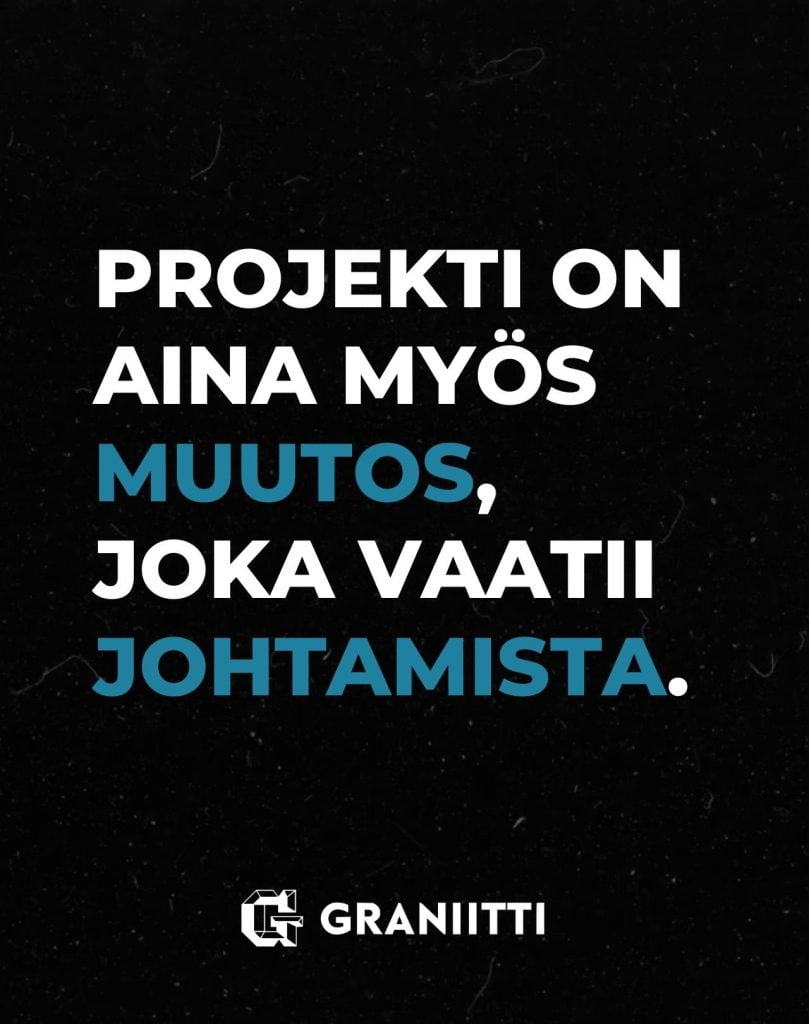The biggest and most important asset of the project is the people. The project often consists of many different experts, who at best have worked for decades around a specific issue. With the starting project, this work, work tools or processes change in some way and people have to adapt to the change. In addition, the project may involve newcomers who do not have a vision of what and how it was done before, but a fresh vision of what direction could be taken.
Projects are always about change, which must be managed. The change can be viewed from a technical and human point of view, and both are needed. The task of the project manager is to open-mindedly connect expert conkers and newcomers to work dynamically with each other.
The project manager therefore needs people management skills and change management skills. The success of the project and thus the change depends on the individuals. When the project is able to specify and justify to the individual "how this affects me", it will be more successful. It is always an advantage if the person leading the project is naturally good at people, but of course you can also learn about people and managing people.
Communication and interaction at the center of everything
A good project manager masters the art of taking care of interaction. Interaction should flourish in projects. This includes good communication within the project as well as outside the project. Traditional tools for good communication include up-to-date documentation, writing down agreed matters and sharing them with all parties, and project scheduling. However, beware of over-planning and useless or heavy documents.
Communication is the responsibility of the entire project team, not the project manager alone. This responsibility can very well be shared. Remember to discuss and share responsibility. Each participant in the project must understand the project's goals clearly, so communicating the goals, targeting the right things and involving them is essential. Listen to understand, not to answer.


Dear Project Manager:
- assigns an owner to the project
- understand the whole and the risks
- ensures smooth communication
- can listen
- knows how to delegate and trust experts
- knows the legislation and requirements
- knows trends and the latest tools for efficient work


Elements of good management
A good project manager already finds out at the beginning of the project the owner of the project, who can do e.g. business decisions during the progress of the project. If the project lacks ownership, it could be compared to a situation where a house under construction lacks an owner. In such a situation, the house may not meet the requirements, its value is likely to be poor, and there is no certainty even that it will be completed. Good management also includes the ability to look at the whole and see potential risks. The same applies to projects and their management.
Plet's start with the beginning and the people. It is good to remember that the project manager is rarely a strong expert on the substance of the project. Therefore, he must give space to people and opinions, listen to professionals who really know about the matter and trust them. Take advantage of people and their expertise and ask, don't assume! Share responsibility and tasks in the project, don't try to handle everything yourself.
Today, the project manager must have a strong command of the reference frameworks of agile development, working with the traditional waterfall model, as well as the requirements related to data protection and cyber security, for example. Various certificates and methods of project work bring certainty to project management and give options from which you can find processes and ways of working suitable for yourself, the project and the organization. A modern project manager also knows the trends and knows the latest tools, for example the new possibilities brought by artificial intelligence in the production of materials.


